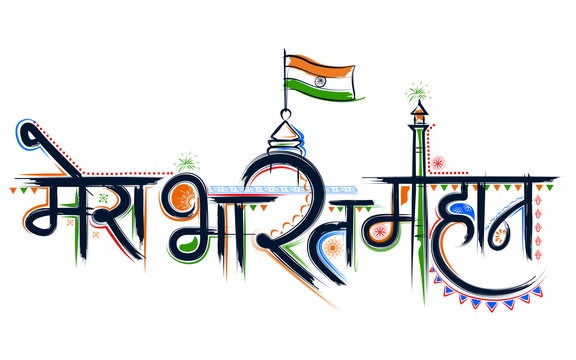About Us
The PCAS is located on the main road from Pudukkottai to Pattukottai, via Alangudi.Established in the Year 2016, Pushkaram College of Agriculture Sciences is affiliated to the erstwhile TamilNadu Agricultural University (TNAU), Coimbatore. It is situated at Thiruvarankulam, Pudukkottai, adjacent to TNAU Research Centre and KVK at Vamban.
Contact Info
- Veppangudi Village,Thiruvarankulam, Pudukkottai
- 04322 242866
- contact@pushkaram.in
- home
- Stakeholder Evaluation
Stakeholder Evaluation
Feedback of stakeholders (Students, Parents, Industries, Employers, Farmers etc.)
At the end of every semester, the year coordinator’s get feedback from the students
regarding teaching methods followed, learning environment and suggestions for
improvement.Further, institution invites all stakeholders to provide feedback through personal
contact/letter /mail/online.
Regular feedback is received through the academic ward counseling where in the
student can express his/ her needs.
Feedback from students about the individual teacher’s performance is obtained
through offline feedback forms.
Parent-teachers meeting are organized regularly to get the feedback from parents and
to update the parents on students’ academic performance. The Parent Teachers
meeting was organized during the commencement of every semester.
Through Rural Agricultural Work Experience (RAWE), students (in groups) are actively
involved in field oriented activities under the supervision of a progressive farmer and acquire
knowledge on farm practices, indigenous technologies, culture, value system etc., Also, as a part
of the RAWE Program, groups of students will also be placed in agricultural industry for ten
days to get exposed to men-management, material and financial management in agro-industry.
The students were placed in several agricultural and horticultural based industries in and around
Thirumayam, Arimalam, Pudukkottai, Karambakudi, Ponnamaravathi, Annavasal,
Thiruvarankulam, Peravurani, Viralimalai and Gandharvakottai Blocks in Pudukkottai. Positive
feedbacks were received from the progressive farmers and industrial people about the
involvement of our students during their RAWE program / industrial tie up.
Also, the students are exposed about the activities of state department of Agriculture
and their role in development of agriculture. A group of students are attached with
Assistant Director of Agriculture for 10 days and feedback were received about their
active involvement and learning.
Farmer’s feedback:
Farmers’ feedback is considered as important one as they contribute immensely in
planning and implementation of suitable action plans for the institution.
Feedback was received from the farmers on the conduct of training programmes,
incidence of pest and diseases, availability of the latest seed / plant materials etc.
The feedback received from the participants of the three batches of the Outcome based
Agripreneur Certificate training programme conducted at this institution in collaboration with
MSSRF Pudukkottai, Naandi skill Foundation, Veralimalai, ROSE NGO Foundation,
Pudukkottai, TVS Motor Company, Hosur showed that special training modules are required for
the subjects like organic farming, water management, Agroforestry and Farm machinery.
Accordingly, module development exercises are being taken up at this institution every month by
calling subject matter specialists of scientific body and the progressive farmers.
We have received a lot of feedback from farmers during the on campus trainings
organized under ATMA project, MSSRF farmers training, Department of Agriculture from
different districts of Tamil Nadu on the intervention of the institution to solve their problems on
soil related nutritional deficiency, pest& disease management in important crops, especially in
coconut on Rugose Spiralling White fly incidence, Bee keeping techniques, Pandal vegetable
cultivation, Neera production techniques, brinjal fruit borer control training , Paddy etc.,
Farmer’s feedback about the student’s involvement in learning of farming practices, their
attitude and interaction capability during the recent RAWE programme indicated that their
involvement in technical interaction with farmers needs further improvement and more number
of method demonstrations are to be conducted in the farmers’ field on the improved agricultural
practices.
Parents Feedback:
During the Parent-Teachers meeting arranged regularly at this institution, many points
were suggested by the parents to improve the academic performance of their wards. They are
listed below along with action taken.
Efforts may be made to make the students to study the subjects also in the hostel during
night hours in addition to their record writing work. Considering this, now study hours has been
introduced in the hostels between 8-10 pm.The performances of their wards in the examinations
to be intimated constantly. This system is in vogue at present and will be strengthened further.
Industry Feedback:
Students are exposed to the agro-industrial atmosphere for 10 days during the RAWE
programme in order to expose them on human resource management, material and financial
management aspects.Feedback from attached industries indicated that 10 days period is not
enough for them to understand the product production, input and financial management. Further,
they indicated that the industry may be permitted to collaborate with the institution on
conducting field trials, research development and in outreach activities of their products.
Feedback – ALMA matter of PCAS
1. Conducting periodic Alumni meet of the committee to chalk out plan of action.2. Interacting with unemployed ex- students to find probability of employment with reference of professionals.
3. Conducting social welfare activities such as blood donation, health awareness programs, tree plantation, cleanliness drive etc.,
4. Re-unions of ex- students.
5. Felicitation of achievers.
6. Shared about various job opportunities and recent projects in their experiences.
7. Discussed how to start new business.
8. Preparation of ICAR - JRF preparation techniques to UG students.
9. Planning and preparation strategies about competitive examination among final year students.
10. Way of collecting notes and preparation methodologies.



